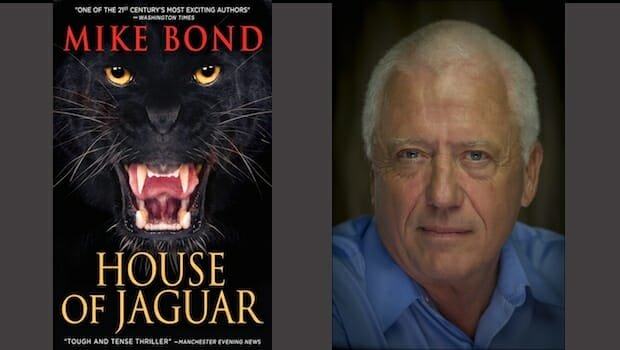 Former human-rights journalist Mike Bond spent years working in Guatemala, but felt frustrated because he could never tell the full story of what was happening in that country. In this interview, Bond discusses his novel’s role in showing how human rights were trampled and guerrilla war conducted with the sanctioning of the US government.
Former human-rights journalist Mike Bond spent years working in Guatemala, but felt frustrated because he could never tell the full story of what was happening in that country. In this interview, Bond discusses his novel’s role in showing how human rights were trampled and guerrilla war conducted with the sanctioning of the US government.
Bond said he decided to write this book for two reasons. The first was the state of affairs in Guatemala while he was working there. “I was writing articles on human rights and guerrilla war in Guatemala, and though they were published widely, I couldn’t tell the full story. It was so atrocious—a mini-Holocaust—that I just had to make it more known.”
Each time Bond traveled to Guatemala, he and his wife worried that he might not return. “From that experience came the love relationship in House of Jaguar, whereas often in war, you love someone who might die at any instant, as might you. This is true in life also, but in war all this is enormously intensified.”
There are three issues Bond dealt with in “House of Jaguar.” He said, “The first is one you examined in January with Lisa Gardner: the nature of evil. Not just personal but also societal, the actions of a government or dictatorship—in this case the US involvement in the Guatemalan military dictatorships’ killing a quarter of a million people.”
“The second is to speak for the voiceless and dispossessed,” said Bond, “the humans and animals and all who are defenseless. Those who cannot speak because they have been murdered, are too poor, or have no way to reach out. Yet, they have something very important to say to us all. The third is love and the good life. The Guatemalan woman doctor in House of Jaguar says, ‘to live a good life is to do as much good as you can.’ Is this true? Love is the antithesis of evil? Are the evil those who were never loved?”
One of the things Bond feels is important in his writing is to convey the truth. He said, “The place, the people, the animals, everything—I try to show as they really are, and to put my readers so deeply into the action, the situation, that they become silent participants—terrified, loving, joyous or sad—just like the others. Hoping for one outcome yet dreading the worst. As if it were really happening to them. Which is why people often say my books have changed them.”
Bond is also focused on conveying what he calls the “magnificent mystery of life.” He said, “As I say in ‘Saving Paradise,’we must protect not only what’s left of the beautiful natural world but also the paradise of freedom and understanding in each person’s heart. My goal in writing what I call the Literature of Liberation is to remind everyone how essential it is to be free.”
Guatemala is not the only location where Bond’s life was put at risk because of his work. He used his experiences from the East African jungles and deserts in ‘The Last Savanna,’ the Middle East wars in ‘Holy War,’ and the dangers of the sea in ‘Saving Paradise.’
What made Guatemala the most dangerous was the timing. He said, “Being a human rights journalist in Guatemala during the worst years of military dictatorships was very dangerous. Among its 260,000 victims, the Army and death squads had killed, ‘disappeared’ or tortured to death more than 150 journalists. At one point I was the only foreign journalist left.”
In fact, on his last day in Guatemala, Bond had been designated as the next victim. He said, “I got to the airport ahead of a death squad, but the airline wouldn’t accept my credit card. The clerk asked if I had an American Express card. By chance one had been sent to me as a promotion before I’d left for Guatemala, and I’d absent-mindedly slipped it into my wallet. They took my Amex card and I got out of Guatemala minutes ahead of the death squad. An Amex card I’d never asked for saved my life.”
More information
Learn more about Mike Bond on his website at mikebondbooks.com.


[…] at the back of the story of Mike Bond's house of Jaguar — Terry Ambrose […]